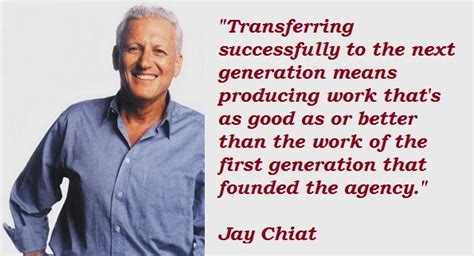A Quote by Anita Roddick
I don't think I'm a risk-taker. I don't think any entrepreneur is. I think that's one of those myths of commerce. The new entrepreneur is more values-led: you do what looks risky to other people because that's what your convictions tell you to do. Other companies would say I'm taking risks, but that's my path - it doesn't feel like risk to me.
Related Quotes
You can be entrepreneurial even if you don’t want to be in business. You can be a social entrepreneur focused on the not-for-profit sector. You can be an agriculture entrepreneur if you want to change how people think about farming. You can be a policy entrepreneur if you want to go into government. The idea of an entrepreneur is really thinking out of the box and taking risks and stepping up to major challenges.
"Why is the creative entrepreneur the riskiest type to be?" I asked. "Because being creative means you are often a pioneer. It is easy to copy a successful and proven product. It is also less risky. If you learn to innovate, create, or invent your way to success, you are an entrepreneur creating new value rather than an entrepreneur who wins by copying."
To laugh is to risk appearing a fool. To weep is to risk appearing sentimental. To reach out to another is to risk involvement. To expose feelings is to risk exposing your true self. To place your ideas and dreams before a crowd is to risk their loss. To love is to risk not being loved in return. To hope is to risk pain. To try is to risk failure. But risks must be taken, because the greatest hazard in life is to risk nothing.
I think the development of the venture capital system has been an example of something which is a successful improvement in risk-bearing. It doesn't exactly remove the risks at the beginning, but at least creates greater rewards at a slightly later stage and therefore encourages, say, small companies to engage in technologically risky enterprises.


































